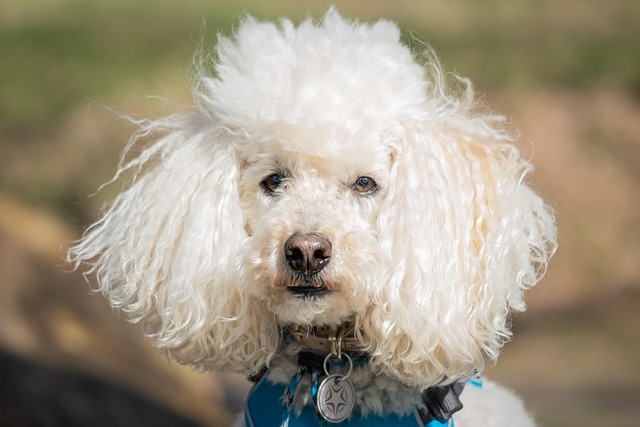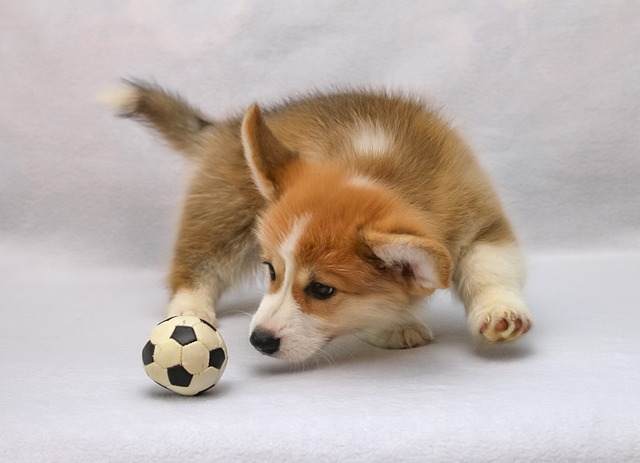When seeing a dog that is usually lively and energetic suddenly become listless, vomiting and having diarrhea frequently, and even losing interest in its favorite food, the owner's heart aches as if it were being gripped. A viral infection in a dog's stomach comes on fiercely. Those invisible viruses are like rampaging "little devils" that wantonly damage the dog's stomach, making them suffer a great deal. At this moment, every owner wishes they could take the pain for their dog and is eager to find effective treatment methods, building a defense line against the virus at home for the dog and helping it regain its health and vitality as soon as possible.
A viral infection in a dog's stomach is usually caused by viruses such as canine parvovirus and canine coronavirus. These viruses are highly contagious. Once infected, the dog's stomach and intestines will be severely affected. In the initial stage of the infection, the dog may just show signs of being in low spirits and having a reduced appetite. Subsequently, it will experience frequent vomiting and diarrhea. The vomit is mostly undigested food or white foam, and the diarrhea stools are watery or pasty, and the color may be yellowish-green or with blood streaks. Looking at the dog lying weakly on the ground, dehydrated due to frequent vomiting and diarrhea, with its fur losing its luster and its eyes no longer bright, the owner's heart is filled with heartache and self-blame, hating oneself for not noticing the dog's discomfort in time. At this time, timely and accurate judgment is crucial. If these symptoms are found in the dog, it should be taken to a pet hospital for a professional examination as soon as possible. Through items such as fecal tests and blood routine examinations, it can be determined whether it is a viral infection and the severity of the infection.
 During the period of waiting for medical treatment or treating the dog at home according to the doctor's instructions, replenishing water and electrolytes is the top priority. The vomiting and diarrhea caused by the viral infection will cause the dog to lose a large amount of water and electrolytes rapidly, leading to dehydration, and severe dehydration can be life-threatening. The owner can use a pet-specific oral rehydration salt, dilute it according to the proportion in the instructions, and feed the dog a small amount every once in a while with a syringe or a small spoon. Be particularly patient when feeding. Gently lift the dog's head and inject the liquid slowly to avoid choking the dog. Every careful feeding is full of the owner's deep concern and love for the dog, hoping that these liquids can replenish energy for the weak dog and relieve the symptoms of dehydration. If the dog cannot eat the oral rehydration salt on its own or the dehydration situation is more serious, it is necessary to take it to the hospital for intravenous infusion treatment in a timely manner.
During the period of waiting for medical treatment or treating the dog at home according to the doctor's instructions, replenishing water and electrolytes is the top priority. The vomiting and diarrhea caused by the viral infection will cause the dog to lose a large amount of water and electrolytes rapidly, leading to dehydration, and severe dehydration can be life-threatening. The owner can use a pet-specific oral rehydration salt, dilute it according to the proportion in the instructions, and feed the dog a small amount every once in a while with a syringe or a small spoon. Be particularly patient when feeding. Gently lift the dog's head and inject the liquid slowly to avoid choking the dog. Every careful feeding is full of the owner's deep concern and love for the dog, hoping that these liquids can replenish energy for the weak dog and relieve the symptoms of dehydration. If the dog cannot eat the oral rehydration salt on its own or the dehydration situation is more serious, it is necessary to take it to the hospital for intravenous infusion treatment in a timely manner.
Adjusting the diet is also the key to helping the dog's stomach recover. During the period when the dog is infected with the virus, its stomach is very fragile and it is difficult to digest normal food. At this time, solid foods such as dog food should be temporarily stopped, and light and easily digestible liquid foods, such as rice soup and chicken soup (the surface oil needs to be skimmed off), should be fed instead. These liquid foods can not only provide the dog with a certain amount of energy but also not cause too much burden on the stomach. When feeding, follow the principle of feeding small meals frequently. Divide the food for a day into 5 to 6 times of feeding, and the amount of each feeding should not be too much. As the dog's symptoms ease, a small amount of well-cooked and mashed chicken or mashed pumpkin can be gradually added to the liquid food to supplement nutrients for it. However, closely observe the dog's reaction. Once the symptoms of vomiting and diarrhea worsen, stop adding new food immediately.
In order to help the dog fight against the virus, it is essential to enhance its immunity. Under the guidance of the doctor, some antiviral drugs and probiotics for regulating the stomach and intestines can be given to the dog. Antiviral drugs can inhibit the replication and spread of the virus, while probiotics can regulate the balance of the intestinal flora, promote the repair of the intestinal mucosa, and help the dog restore the function of its stomach and intestines. Giving medicine to the dog is often a "big project". Some dogs will resist taking medicine. The owner can mix the medicine into a small amount of delicious nutritional paste to guide the dog to eat it; or use a pill dispenser to carefully put the medicine into the dog's mouth. Every time of giving medicine, the owner is full of expectations, hoping that the medicine will take effect and let the dog get rid of the virus's Infringement as soon as possible.
In addition to drug and dietary treatment, creating a warm, quiet, and clean resting environment for the dog is equally important. Lay a soft mat in the place where the dog sleeps, pay attention to keeping it warm, and avoid the dog's abdomen getting cold, because the cold will aggravate the discomfort in the stomach and intestines. Regularly change the dog's mat and bedding, keep the environment clean and hygienic, and prevent the growth of the virus and secondary infections. The owner can stay by the dog's side, gently stroke it, and give it comfort and a sense of security.
Treating a viral infection in a dog's stomach is a "battle" that requires the owner to go all out. In this process, the owner needs to pay close attention to the changes in the dog's condition and take care of its diet and daily life patiently. When seeing the dog gradually regain its spirit from the initial weakness, start to eat actively, and wag its long-lost tail again, a sense of relief and great achievement will well up in the owner's heart.

 During the period of waiting for medical treatment or treating the dog at home according to the doctor's instructions, replenishing water and electrolytes is the top priority. The vomiting and diarrhea caused by the viral infection will cause the dog to lose a large amount of water and electrolytes rapidly, leading to dehydration, and severe dehydration can be life-threatening. The owner can use a pet-specific oral rehydration salt, dilute it according to the proportion in the instructions, and feed the dog a small amount every once in a while with a syringe or a small spoon. Be particularly patient when feeding. Gently lift the dog's head and inject the liquid slowly to avoid choking the dog. Every careful feeding is full of the owner's deep concern and love for the dog, hoping that these liquids can replenish energy for the weak dog and relieve the symptoms of dehydration. If the dog cannot eat the oral rehydration salt on its own or the dehydration situation is more serious, it is necessary to take it to the hospital for intravenous infusion treatment in a timely manner.
During the period of waiting for medical treatment or treating the dog at home according to the doctor's instructions, replenishing water and electrolytes is the top priority. The vomiting and diarrhea caused by the viral infection will cause the dog to lose a large amount of water and electrolytes rapidly, leading to dehydration, and severe dehydration can be life-threatening. The owner can use a pet-specific oral rehydration salt, dilute it according to the proportion in the instructions, and feed the dog a small amount every once in a while with a syringe or a small spoon. Be particularly patient when feeding. Gently lift the dog's head and inject the liquid slowly to avoid choking the dog. Every careful feeding is full of the owner's deep concern and love for the dog, hoping that these liquids can replenish energy for the weak dog and relieve the symptoms of dehydration. If the dog cannot eat the oral rehydration salt on its own or the dehydration situation is more serious, it is necessary to take it to the hospital for intravenous infusion treatment in a timely manner.



